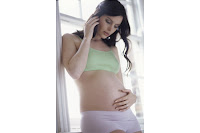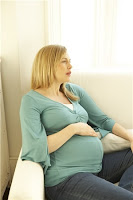Dizzinesses and faints at pregnancy

In the second trimester, and sometimes and earlier you will have from time to time dizzinesses. These pregnancy symptoms - the normal phenomenon during pregnancy, and they do not bear in themselves any danger to mother or the child if attacks do not become more frequent and strong.
Dizziness which arises when you sharply rise, is caused by normal physiological changes in an organism of the pregnant woman. As soon as you rise, the gravity there and then forces blood to mix up from the top half of body in the bottom. In a usual condition the warm system quickly adapts, not supposing pressure decrease and supporting supply of a brain by oxygen. During pregnancy the warm system of the woman reacts to changes not so quickly therefore brain blood supply temporarily worsens, and you test dizziness is a condition the lowered blood pressure owing to change of position of a body is called. Quite probably, it occurs because the uterus competes to a brain for timely blood supply and sometimes wins in this struggle.

Sometimes simply long stay in sedentary or lying position leads to that blood accumulates in the bottom half of body that worsens blood supply
Brain also promotes dizziness occurrence. This tendency naturally amplifies during pregnancy as the relative sizes of the bottom half of body considerably increase. In the third trimester there is one more reason of dizzinesses - pressure of a uterus upon blood vessels of a belly cavity. It means, that blood comes back in the top half of body, especially more slowly when you lay on a back or on right to a side.
The reasons of dizzinesses and faints which do not concern norm during pregnancy and should be eliminated, is a low level of sugar in blood (it can be lifted by means of a correct diet and more frequent food intake) and an anaemia or low quantity of red blood blood cells (this condition is corrected by a diet with the high maintenance of iron or reception of the food additives containing iron). Unlike dizzinesses arising from time to time, constant faints are not norm, and it is necessary to inform on them to the doctor who will establish their reason and will appoint treatment.The dizziness is very unpleasant pregnancy symptom.
To prevent and weaken dizzinesses during pregnancy, try to take following measures:
 1- Follow the councils resulted above.
1- Follow the councils resulted above.2- have often a bite.
3- Regularly visit the doctor who will watch the general condition of your health, each time to measure a blood pressure and periodically to check iron level in blood.
4- Try not to sit and not to stand in one position for a long time. If you are compelled to sit long, raise feet and from time to time change a pose. Knead feet (recommendations see p. 181 originals) more often.
5- In second half of pregnancy it is desirable to lay or sleep on left to a side.
6- Slowly and smoothly sit down on bed or rise from an armchair - especially in the mornings.
7- If you test dizziness and it is necessary for you to sit down or lay down - make it.
8- If after you have sat down, the dizziness has not disappeared, fall on one knee and put a head on other knee or on a chair. Whenever possible it is necessary to lay down on a convenient surface that the head was at body level, and feet have been raised on some inches.
pregnancy symptoms
